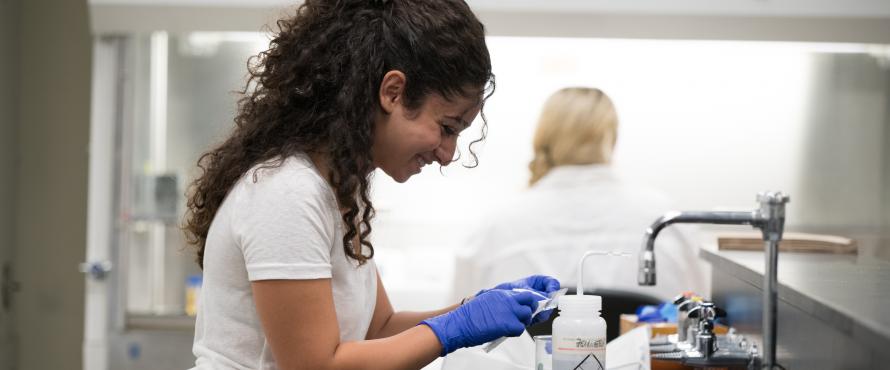Environmental science strives to understand the many interactions between the environment and its components, including the impact of human activities on the environment on one hand and how the environment affects humans on the other. Environmental science goes to the heart of environmental issues in terms of understanding the science behind them as well as in developing scientifically sound solutions.
Gain Hands-On Experience
The Environmental Science program offers practical lab and field activities so that students get hands-on experience in the various settings. Many Environmental Science students discover their interests, strengthen their experience base, and build their resumes by doing internships at research laboratories or in faculty research projects.
Environmental Science advisors will help you find a research experience to fit your interests and goals. Here are some recent examples of internships:
- NASA Marshall Space Flight Center, Huntsville, Alabama, Center for Applied Atmospheric Research and Education (CAARE) Program
- National Soil Erosion Research Lab, West Lafayette, Indiana, USDA Agriculture and NEIU’s Undergraduate Achievement (AGUA) Project
- University of California at San Diego: Scripps Institution of Oceanography; Summer Undergraduate Research Fellow (SURF)
Successful Graduates
Graduates from the program have been successful at joining graduate programs and entering careers that deal with pressing environmental issues, including:
- Rashanda Elijio analyzes samples in the water quality laboratory of the water purification plant in Belize City, Belize.
- Kayla Martinez-Soto is in a graduate program Master’s Program at the Virginia Institute of Marine Science at the College of William and Mary.
- Lynnette Murphy is in a graduate program at the O'Neill School of Public and Environmental Affairs at Indiana University, Bloomington, Indiana.
What Can You Do with an Environmental Science Degree, You Ask?
Plenty! Environmental scientists work to protect water, air, soil, energy, food, and ecological resources. Students with a bachelor of science degree may move on to graduate school, or they may work at research labs, in consulting and engineering companies, or at government agencies at the local , state, regional, or federal level. Examples of agencies include:
- Chicago Water Department
- Metropolitan Water Reclamation District
- U.S. Environmental Protection Agency
- U.S. Geological Survey
- U.S. Department of Agriculture
Students can also find positions in companies that work with soil science, solid waste management, hazardous waste management, air quality management, water quality management, land and water conservation, fishery and wildlife management, and forestry, among others.








